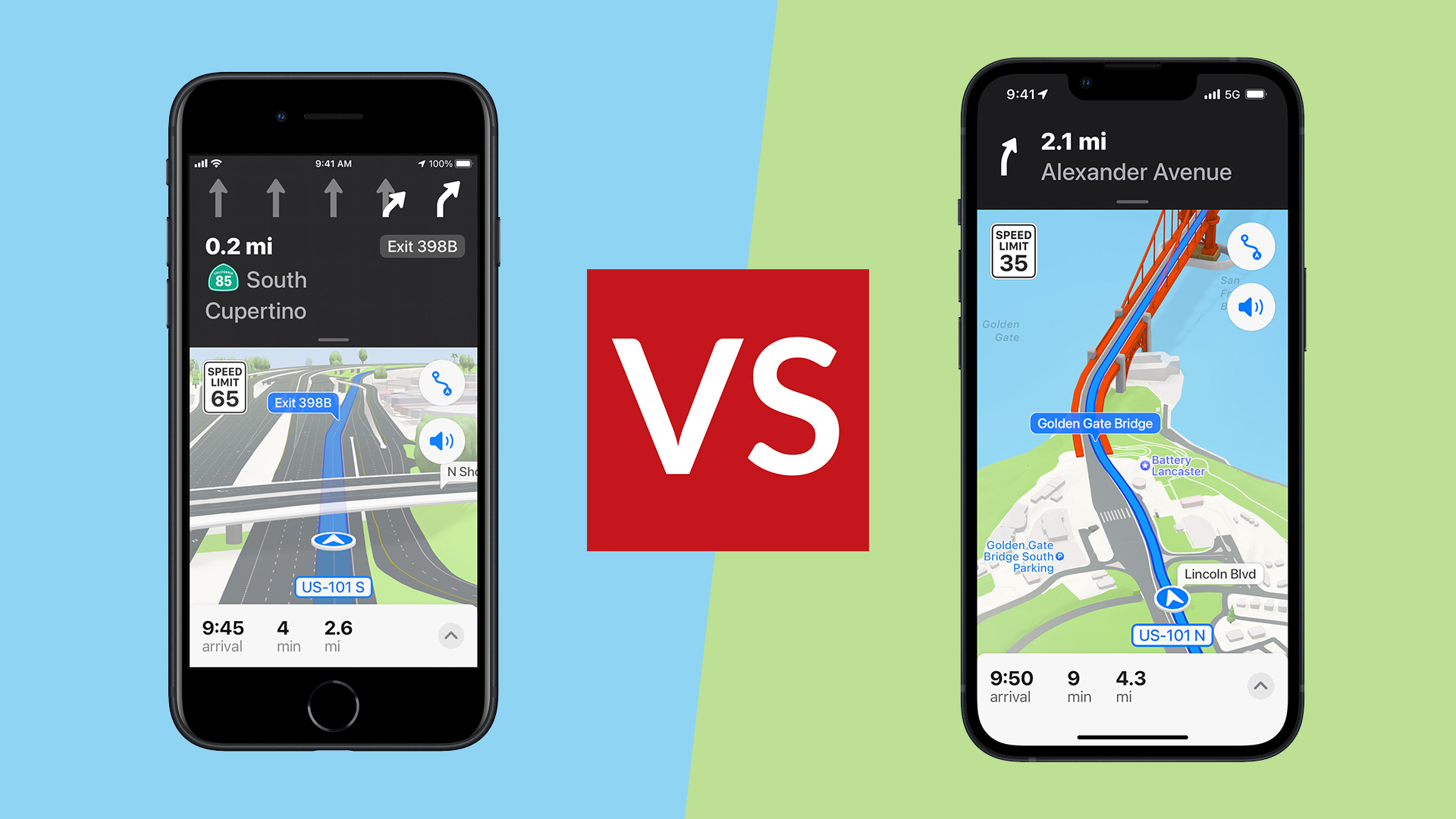
Get all the latest news, reviews, deals and buying guides on gorgeous tech, home and active products from the T3 experts
You are now subscribed
Your newsletter sign-up was successful
If you're looking at buying a new Apple phone in 2022, you might be wondering about the differences between the iPhone SE (2022) and iPhone 13. These are Apple's newest phones, with the iPhone SE released in March 2022, and the iPhone 13 launched in September 2021.
The iPhone SE 3 includes a lot of the technology that made the iPhone 13 so good – we gave it five stars in our iPhone 13 review, after all – but at a much cheaper price. But it doesn't include all of the pricier iPhone's technology, of course.
So if you want to know what exactly you get in the iPhone SE 3 vs the iPhone 13, we'll break it all down here, section by section. Both are among the best phones available today, but here we'll help you work out which is better for you.
iPhone SE (2022) vs iPhone 13: Price & storage
Speaking of cost, then, the iPhone 13 is a significant investment even at its lowest tier, starting at $799/£779 for 128GB storage and jumping up to $1,099/£1,079 for the full 512GB. The iPhone SE (2022), on the other hand, almost halves the price – though it also halves the base storage, with a 64GB version costing $429/£419 and the 256GB top end coming in at $579/£569.
That's really quite a margin. Yes, obviously the SE is meant to be cheap, but it's worth considering a little context: although it's less water resistant (withstanding 30 minutes at one metre compared to the iPhone 13's six-metre threshold) its low price puts the iPhone SE almost in rough-and-tumble territory.
It's a phone you can carry around without fear. It's a beater. It's a phone you might even buy for the teenager in your life. As tough as it may be, the iPhone 13 prices itself slightly above that mark for a lot of people.
iPhone SE (2022) vs iPhone 13: Size & screen
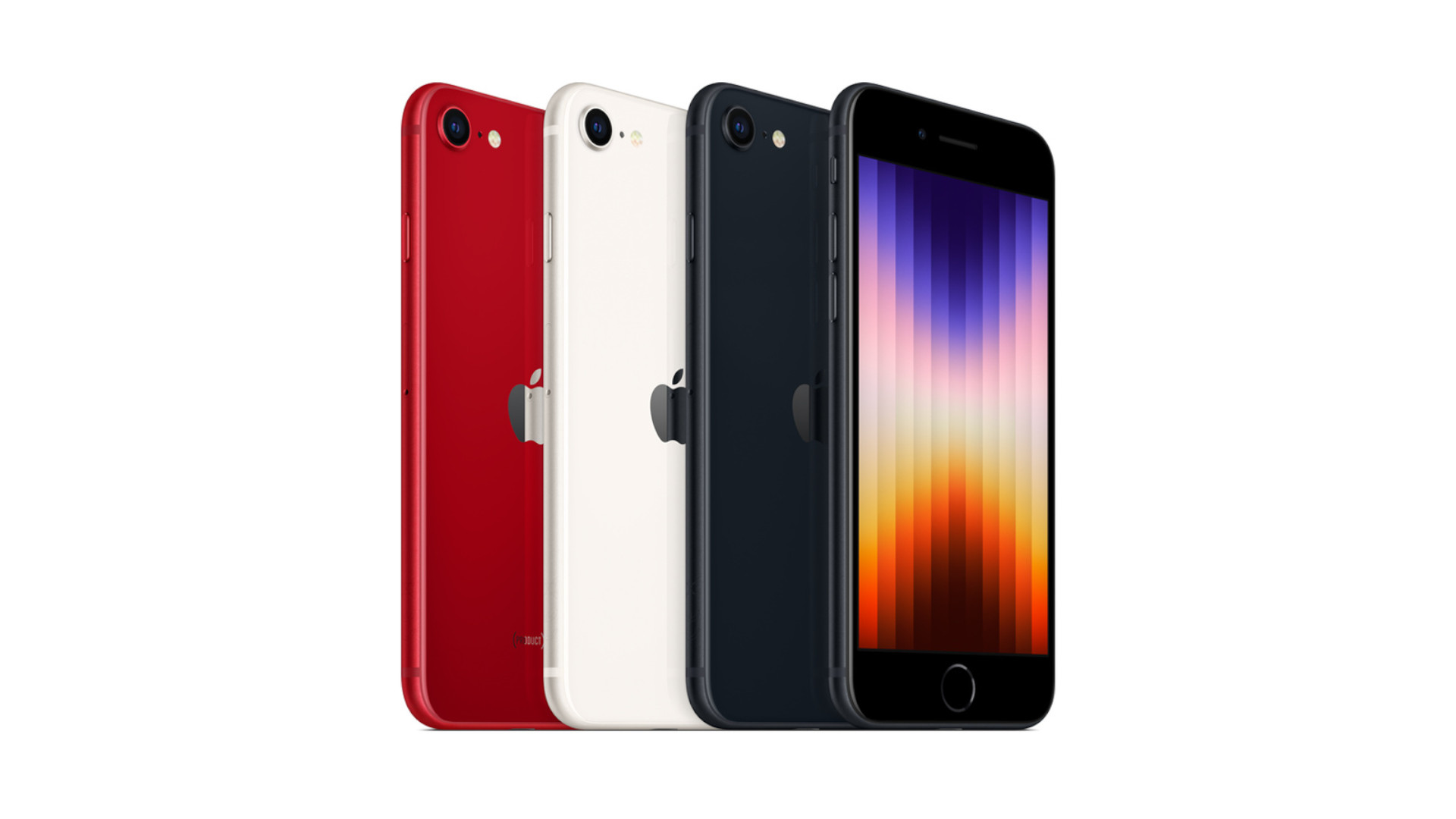
The iPhone SE range comes in three colours: (Product)Red, Starlight and Midnight.
The iPhone 13 is large – at 146.7 mm (5.78 inches) x 71.5 mm (2.82 inches) it'll easily fill your pocket, and its 7.65 mm (0.30 inches) depth is indicative of Apple's commitment to move away from overtly slim devices in favour of those with better functionality.
Get all the latest news, reviews, deals and buying guides on gorgeous tech, home and active products from the T3 experts
The new iPhone SE keeps the same basic iPhone 8 design as its predecessor, and still opts for a glass-and-aluminium structure - though Apple says it's upgraded the glass on the front and rear to a tougher version also used on the rear of the iPhone 13.
The iPhone SE is slimmer than the iPhone 13 (just) at 7.3 mm (0.29 inches) and its dimensions are somewhat smaller at 138.4 mm (5.45 inches) x 67.3 mm (2.65 inches). It's noticeably lighter, too, at 144 grams (5.09 ounces) vs the iPhone 13's 173 grams (6.10 ounces). We should point out, though, that the iPhone 13 Mini is smaller than the SE in every dimension but thickness, and still manages to offer a larger display.
Ah, yes, the display: that's the big flashing neon sign here. The SE keeps its iPhone 8-style design and its very 2017 screen-to-body ratio, with a big forehead and haptic home button-sporting chin abutting its 4.7-inch 1334x750 (326 ppi) LCD panel. That's still an excellent screen – it has True Tone, meets the P3 colour gamut, and can hit 625 nits max brightness – but it's nothing next to the iPhone 13's offering.
There, you get 6.1 inches of edge-to-edge OLED display with HDR support. It can top out at 1,200 nits max brightness (for HDR) and its 2532x1170 resolution gives it a 460 ppi sharpness. It's absurdly good.
iPhone SE (2022) vs iPhone 13: Performance & battery
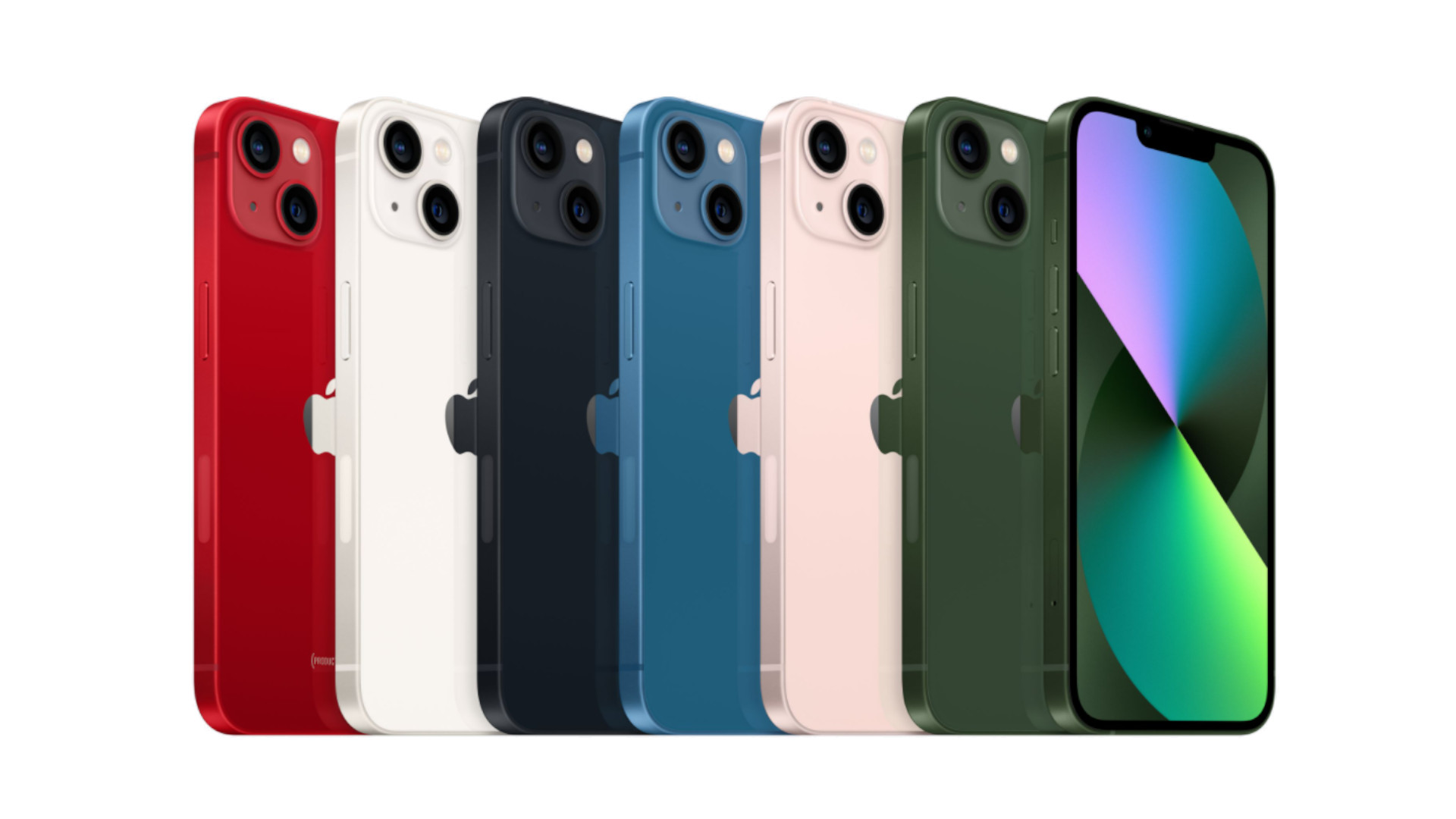
The iPhone 13's colour selection is ever-increasing: it now comes in (Product)Red, Starlight, Midnight, Blue, Pink and a fetching Green.
Here things come back into line a little more, because the new iPhone SE has been offered the A15 Bionic, which is precisely the same chip as you'll find in the iPhone 13. It may not be able to take advantage of all of its capabilities because of a couple of other hardware limitations, but the speed and future-proofing is definitely there.
If you're considering an iPhone but don't think you'll be able to make the most of the fancy features of the iPhone 13, the fact that the SE is roaring away on Apple's latest mobile chip offers up a bit of reassurance that this is going to keep up for some time to come.
Battery-wise, the iPhone 13 crams in a larger unit than the SE, and there's something of a large gap between their expected lifespan; Apple claims the iPhone 13 can stream 15 hours of video to the iPhone SE's 10 hours, so there's potentially half as much life again. So while Apple has improved the battery life on the SE in this model, the iPhone 13 still has a huge edge.
You don't get the iPhone 13's MagSafe charging on the iPhone SE, but it does support Qi wireless charging – as well as both supporting wired charging.
iPhone SE (2022) vs iPhone 13: Connectivity
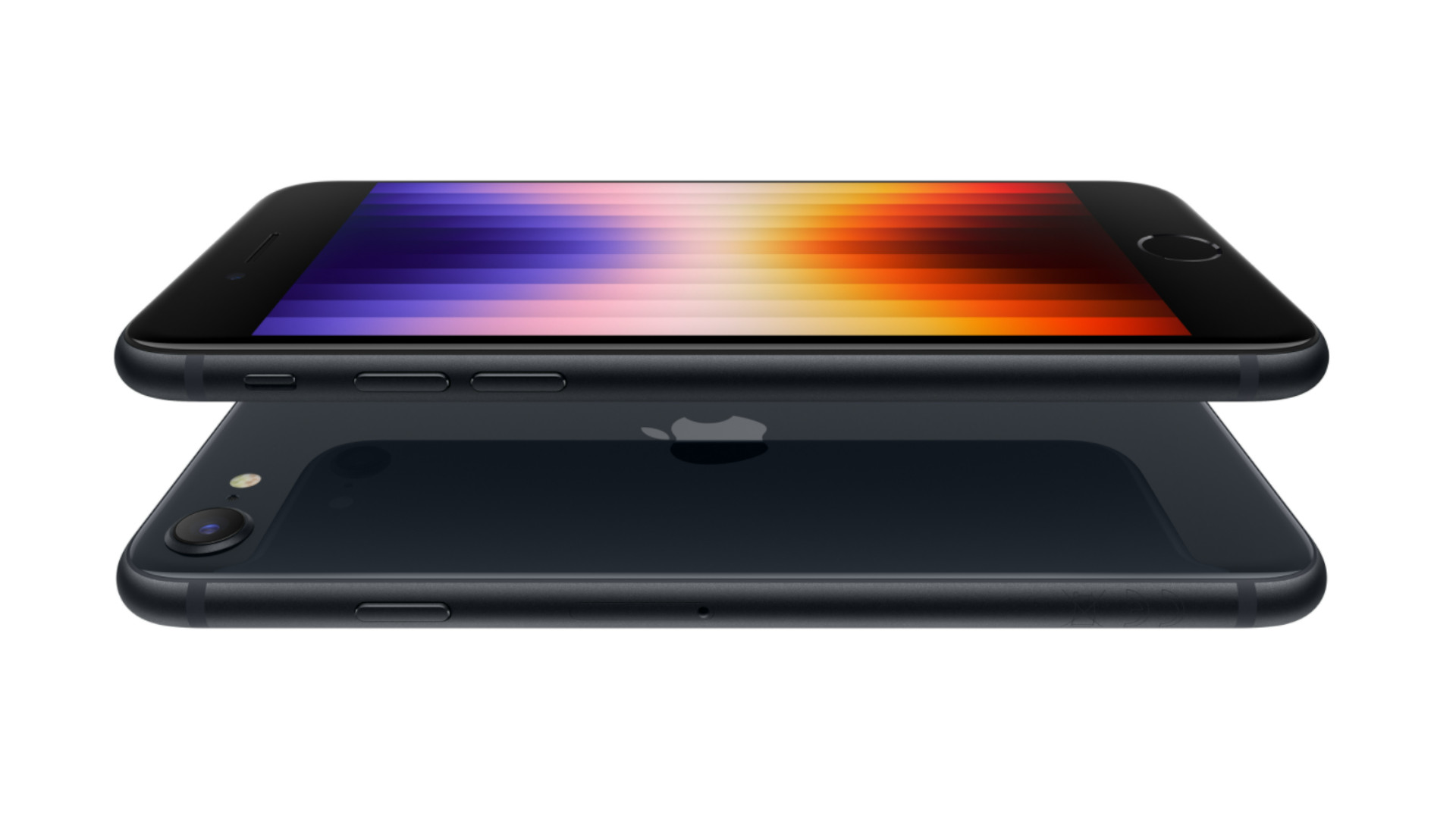
The iPhone SE's design is dated but still plenty attractive.
Although both phones support 5G, there's more than one kind of 5G around. The SE gets the more basic package of the two, with a radio which can support sub-6GHz 5G with 2x2 MIMO, while the iPhone 13 offers 4x4 MIMO, Gigabit LTE, supports an extra couple of bands, and includes an ultra wideband chip too.
Basically, both can go very fast, but the iPhone 13 can hit the absolutely peak of 5G speeds in areas that support it.
Both phones still cling on to the Lightning connector, somehow; we'd have loved to see it dropped for the SE, but Apple's focus this time around was clearly on internal design rather than any external changes. This does mean every plug-in accessory should behave exactly as it did before, so the SE could be a good budget upgrade from a previous version of the iPhone if you're already kitted out with add-ons.
iPhone SE (2022) vs iPhone 13: Camera
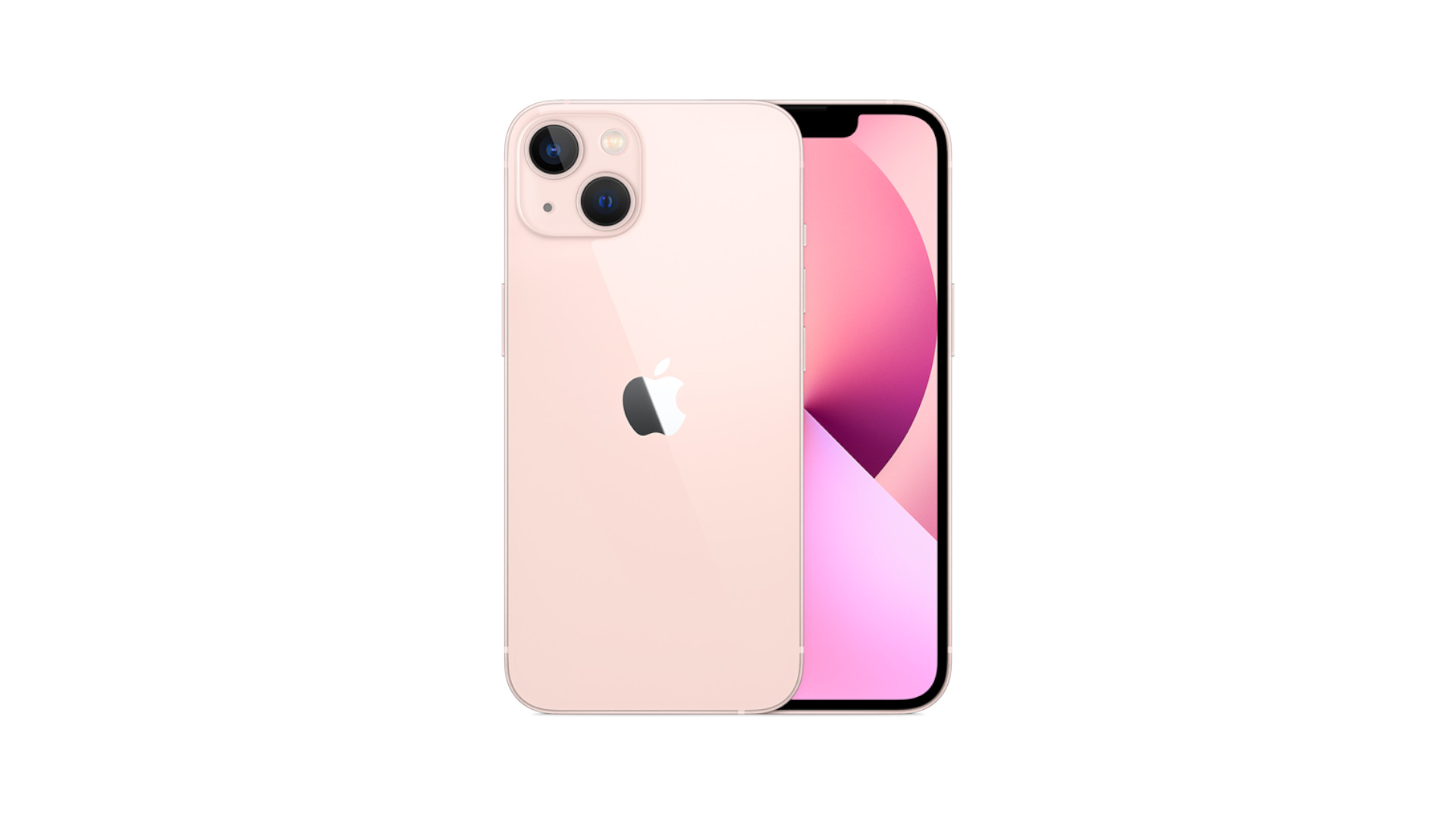
The iPhone 13's camera package is superb.
The iPhone 13 is almost packing more camera technology than phone technology these days. The iPhone SE is not. We're not taking anything away from its visual senses, though. Its rear camera does get the 12MP ƒ/1.8 wide cam which Apple seems to be putting in everything these days along with a flash and optical stabilisation, and its 7MP selfie cam is fine enough.
The iPhone 13's dual 12MP camera package on the rear, with a ƒ/1.6 wide and ƒ/2.4 ultra wide combo, is just superb. Add that to sensor-shift stabilisation, actual optical zoom, a stunning night mode and cinematic mode for its videos and you've got one heck of a package. And its 12MP TrueDepth front camera is just as brilliant.
Both feature the advanced image processing of the A15 chip, which helps to sharpen and improve contrast in your images. But the iPhone 13 gives that chip more to work with.
The iPhone 13 is far better, then. But again, the iPhone SE doesn't exactly underperform for its price.
iPhone SE (2022) vs iPhone 13: Conclusion
The iPhone 13 is the better phone. That's no surprise! It looks better, there's a lot more depth to its features, its cameras are stronger – it's just better.
But it costs nearly double the price of the iPhone SE (2022). All things considered, the SE a very strong budget iPhone. It fights toe-to-toe with Android phones in its bracket (at least if you ignore its now six-year-old styling) and it's powerful enough that it'll keep going for some years to come – including a full range of software and security updates over the time, which you're not guaranteed with many Android phones.
Really, it comes down to which features you can't live without for the price you want to pay – the iPhone 13 is much better for taking photos and watching videos, and for battery life, but in terms of the overall experience, the vast majority is equal on the iPhone SE.

T3 magazine's own Gadget Guru is a 25-year veteran of the tech writing wars, and has the scars to prove it. He's written for the UK's biggest technology publications, and knows everything from smart doorbell voltage needs to how to bend Windows to his every whim.
